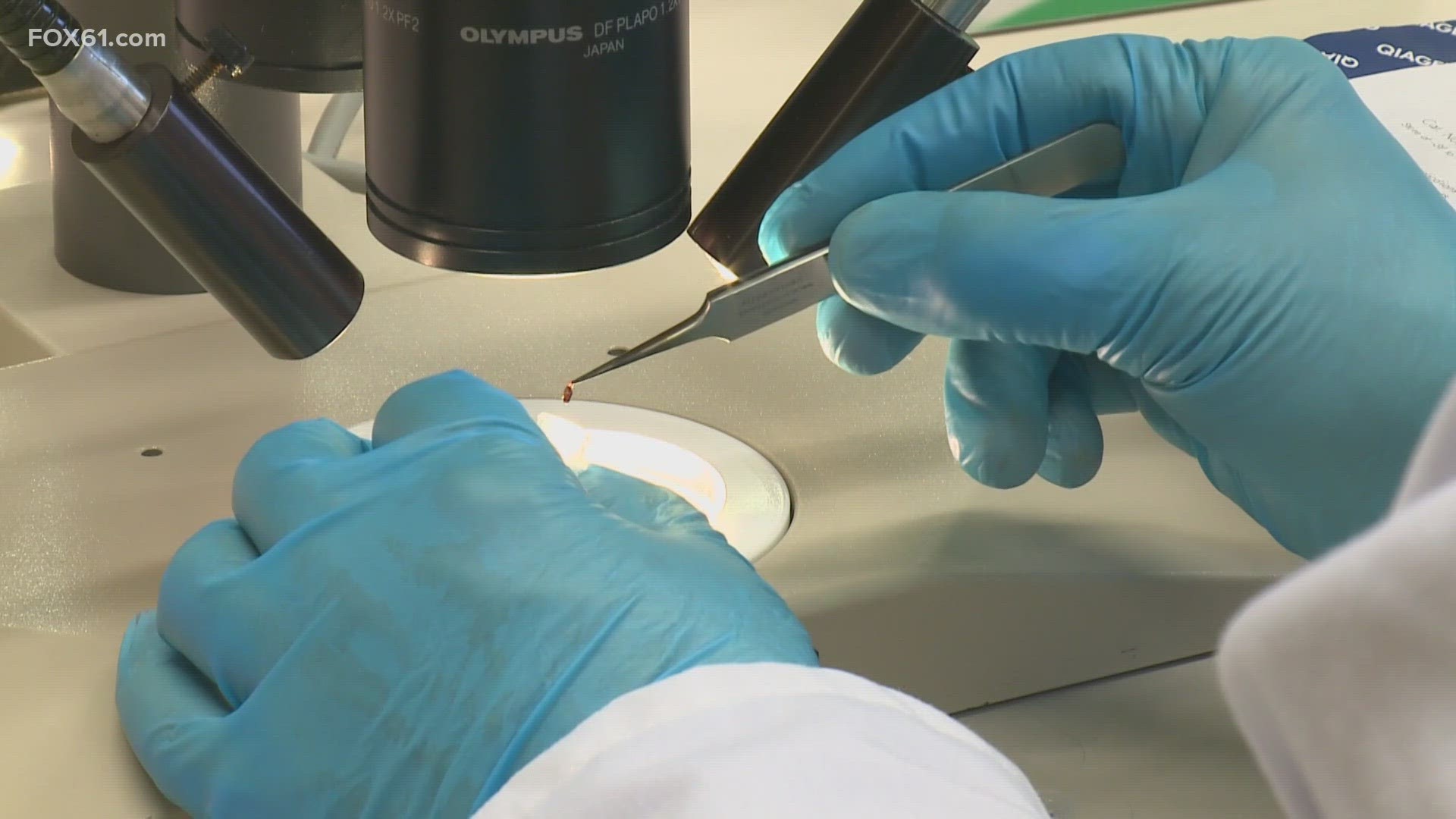NEW HAVEN, Conn. — While most ticks are about the size of a sesame seed, the tiny creatures can pose a very large danger.
"Ticks is so small it’s so hard to find them," said Michael Lewis of New Haven.
Now experts in Connecticut are seeing more and more exotic and invasive species.
"These ticks are those that are hitchhiking on people when they go abroad," said Dr. Goudarz Molaei, director of the state's tick and tick-borne disease surveillance program.
He said that in the last few weeks the Connecticut Agricultural Experiment Station has received at least four exotic tick species from Europe, Africa, and South and Central America.
"There are a lot of diseases both bacterial, viral, protozoan diseases or parasitic diseases that these ticks transmit," Molaei said.
It’s not just humans that are at risk.
"Some of these diseases or disease agents that these invasive ticks carry they are particularly difficult for pet animals," Molaei said.
Dog owners said they already take steps to protect their pets but will now be even more aware.
"He takes one, a pill, once a month and it’s supposed to kill the ticks and fleas and I’ve seen dead ticks on him," said Illisa Kilman of New Haven.
"She also takes a monthly pill that makes me feel pretty safe taking her out in the woods and then we just give her a quick look over after we hike," said Kiersten Schmidheiser of New Haven.
In addition to health risks, experts said one of the greatest dangers is a growing population of these ticks in our state.
"I will not be surprised to see in the next few years to have more established populations of additional tick species that are considered invasive tick species," Molaei said.
He said, it’s mainly a problem in New Haven and Fairfield counties right now but it likely won’t stay that way forever.
"It’s not going to take that long to move to all counties," Molaei said.
To prevent tickborne diseases experts recommend the following:
• Avoid or limit activity in tick-infested areas including grassy, brushy, or wooded areas.
• Treat clothing and gear with approved acaricides (e.g., products containing 0.5% permethrin)
• Use Environmental Protection Agency (EPA)-registered repellents containing DEET and other products.
• Check your clothing for ticks
• Check your body and shower after outdoor activity
• Tumble dry clothes in a dryer on high heat for 10 minutes to kill ticks on clothing after outdoor activity.
---
Have a story idea or something on your mind you want to share? We want to hear from you! Email us at newstips@fox61.com
----
HERE ARE MORE WAYS TO GET FOX61 NEWS
Download the FOX61 News APP
iTunes: Click here to download
Google Play: Click here to download
Stream Live on ROKU: Add the channel from the ROKU store or by searching FOX61.
Steam Live on FIRE TV: Search ‘FOX61’ and click ‘Get’ to download.

